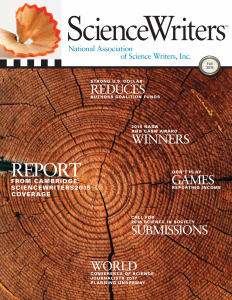By Julian Block
Most NASW members and other freelancers are “cash basis” taxpayers. That’s IRS jargon for, among others, writers who have to declare advances and royalties for books and payments for articles in the year that they actually receive them. Similarly, the IRS generally forbids freelancers from deducting business expenses and other allowable outlays until the year that they actually pay them.
Cash-basis taxpayers are also subject to a “constructive receipt” rule. This rule requires them to declare as income amounts that, though not actually received, have been credited to their account (interest on savings, to cite a common example), or made subject to their control or set aside for them.How does the IRS apply these requirements to a hypothetical freelance writer we’ll call Charlotte Vale? Let’s say that Charlotte, who’s based in New York City, is prolific and successful. In almost all years, her big month for earnings is December, when she receives lots of checks from book publishers for royalties or advances and from magazines for articles.
In most years, Charlotte’s publishers mail December payments early in the month, and she deposits them in the middle of the month. But 2015’s Christmas crunch considerably slowed deliveries for her neighborhood. It wasn’t until three days after Christmas that the payments plopped into her mailbox. The delivery, unfortunately for Charlotte, happened right after she left home for a flight to Honolulu, where she remained for a few weeks. It was well into January of 2016 when Charlotte first became aware that her mailbox was stuffed with December-dated checks.
Tax-savvy Charlotte asked the IRS to determine the right return to report the payments as income. Is it 2015? Or, is it 2016, the year that she returned home to discover an accumulation of mail? One tidbit that Charlotte kept out of the conversation was that if she had her druthers, she would prefer 2016.
All of the payments count as reportable income. So why, you might wonder, does it matter when she reports them?
What prompted Charlotte’s inquiry is her desire to keep more money in her pocket and out of the IRS’s till. She anticipates that her income from writing and other sources (and tax tab) for 2015 will be higher than for 2016, when she intends to scale back on writing assignments. Charlotte will lose lots less to the IRS if it allows her to move a significant amount of income out of higher-bracket 2015 and into lower-bracket 2016.
For the IRS, the answer was a no-brainer. Charlotte can’t game the system. She must report the payments as income for 2015, when the checks were dated and delivered. Too bad for her that she was 5,000 miles away when the payments arrived.
Some filing reminders for Charlotte and other freelancers. Every January, Charlotte can count on receiving additional mailings from publishers. Each of them sends a Form 1099; this time around, all of the 1099s will show that they are for 2015. The next step in the information-reporting process is that the publishers have to send copies of the forms to the IRS and, in Charlotte’s case, to the New York State Department of Taxation and Finance (New York State and New York City impose income taxes). The federal and state tax collectors then match those forms to her Social Security number.
Before Charlotte fires off a return, it’s prudent to first make sure she includes all payments received for the year in question in the total figure shown on the line for gross receipts on Schedule C (Profit or Loss From Business) of the 1040 form. There’ll be trouble ahead if the amount of Schedule C receipts that she declares differs from the figures shown on her 1099s. The IRS’s computers are going to notice the discrepancy, and ask her to account for the difference. Should Charlotte be unable to do so, she’ll be dunned for additional income taxes, self-employment taxes (Social Security taxes for the self-employed), interest and, perhaps, penalties on the unreported payments.
Why self-employment taxes? Because they’re more low-hanging fruit for the computers. An increase in the amount shown for gross receipts doesn’t just increase the amount shown for net profit on Schedule C, thereby increasing the amount of writing income subject to income taxes. It also increases the amount of writing income subject to self-employment taxes.
Worse yet, the IRS might decide to question other items on her return. It might also take a look at her returns for earlier years.
Charlotte’s tax travails aren’t ended even if the IRS contents itself with collecting income taxes and self-employment taxes on the unreported income and asking no other questions. It routinely shares information with New York State and other states, so Charlotte should expect to be billed by New York State.
Julian Block is an attorney and author based in Larchmont, N.Y. He has been cited as “a leading tax professional” (New York Times), “an accomplished writer on taxes” (Wall Street Journal), and “an authority on tax planning” (Financial Planning Magazine). Information about his books is at [julianblocktaxexpert.com(http//julianblocktaxexpert.com).
(NASW members can read the rest of the Fall 2015 ScienceWriters by logging into the members area.) Free sample issue. How to join NASW.



